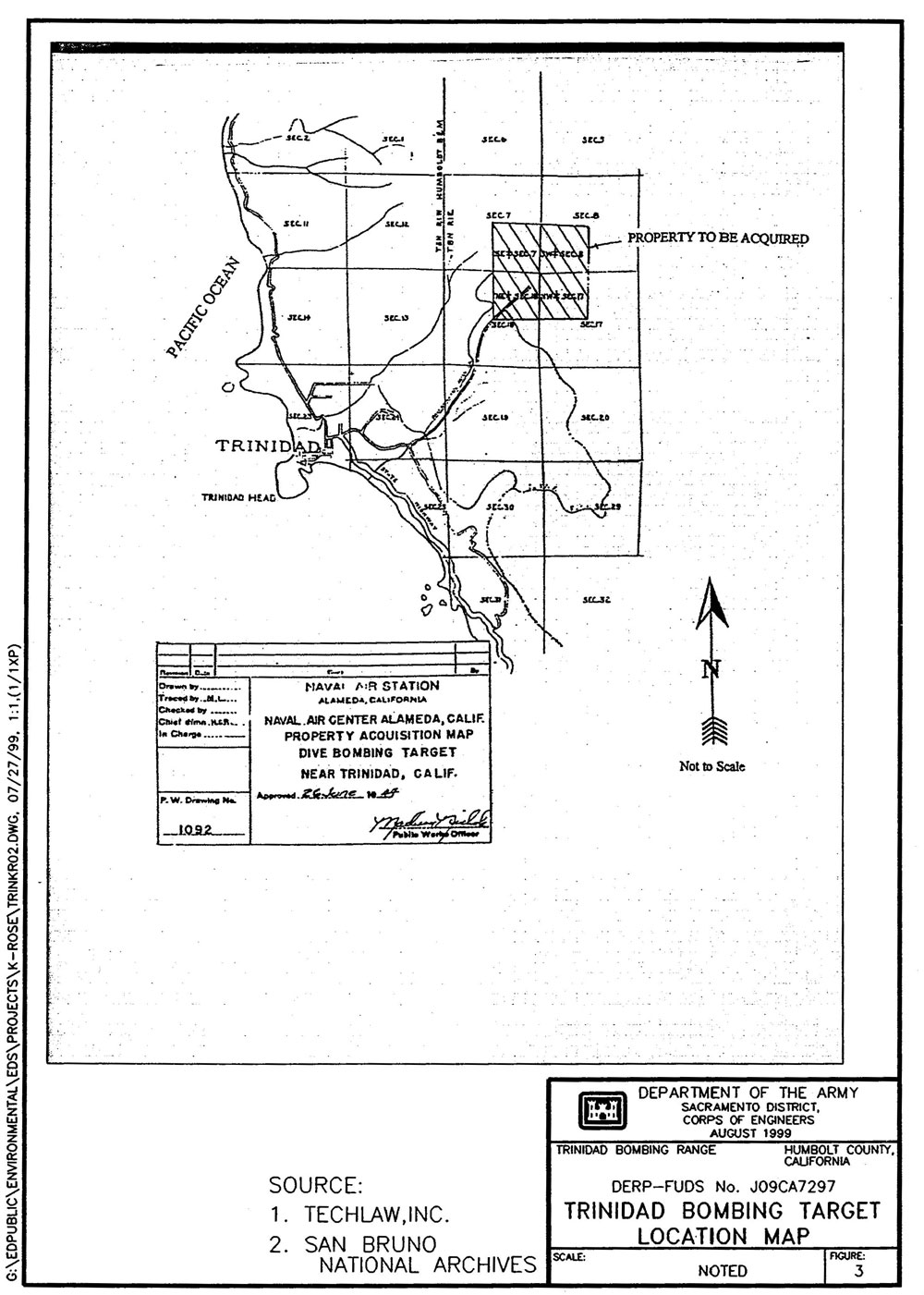After the lease to the Navy was terminated on 4 March 1946, the Site was again used as a timber stand for logging. The Site and vicinity are still timber stands that have changed ownership several times through deeds, mergers, and divisions. Green Diamond Resource Company currently owns the Site and vicinity.
Former Arcata Bombing Target No. 21 was acquired through a lease with the Hammond Lumber Company on 1 October 1944. According to the Physical Properties and Facilities of the Principal Naval Activities and Offices Located in the 12th Naval District dated June 1945, the Site was under the operational control of Naval Auxiliary Air Station (NAAS) Arcata. Pilots from that station would use this target area to practice precision dive bombing and air-to-ground gunnery.
No documentation was found during research indicating the specific types of ordnance used at the Site. Typically, inert training bombs were dropped by naval aircraft from NAAS Arcata in preparation for deployment overseas. Spotting charges were incorporated into the training bombs to judge target accuracy. These inert miniature bombs included Army/Navy (AN)-Mk 5, AN-Mk 23, and AN-Mk 43 bombs made of cast iron, zinc, or lead; and the Navy Mk 15 Mod 3 and the Army M38A2 100-pound practice bombs filled with either sand or water. Typical ammunition used in air to ground gunnery included the 0.50 caliberM2 Ball round.
No Navy documentation was found acknowledging the use of live ordnance. However, the following excerpt was an answer to a complaint in condemnation dated 2 February 1945, "Defendant, Hammond Lumber Company, further alleges that it is informed by the United States Navy that said bombs to be used for said target practice are live bombs and hit with great violence, force and explosion" (Paragraph V, Lines 26-29). The aerial photograph dated 1948 shows scarring at the impact area, but no distinctive craters are visible which live bombs would have created.
According to the Humboldt Times Newspaper articles dated 6 and 7 October 1945, a 7,000-acre forest fire had devastated the Site and vicinity. Evidence of new vegetation can be seen in the 1948 aerial photograph and burnt tree stumps were observed during the Site visit. No wooden structures or targets erected by the DoD were observed during the Site visit.
After the lease to the Navy was terminated on 4 March 1946, the Site was again used as a timber stand for logging. The Site and vicinity are still timber stands that have changed ownership several times through deeds, mergers, and divisions. Simpson Resource Company (also known as the Green Diamond Resource Company) currently owns the Site and vicinity.
